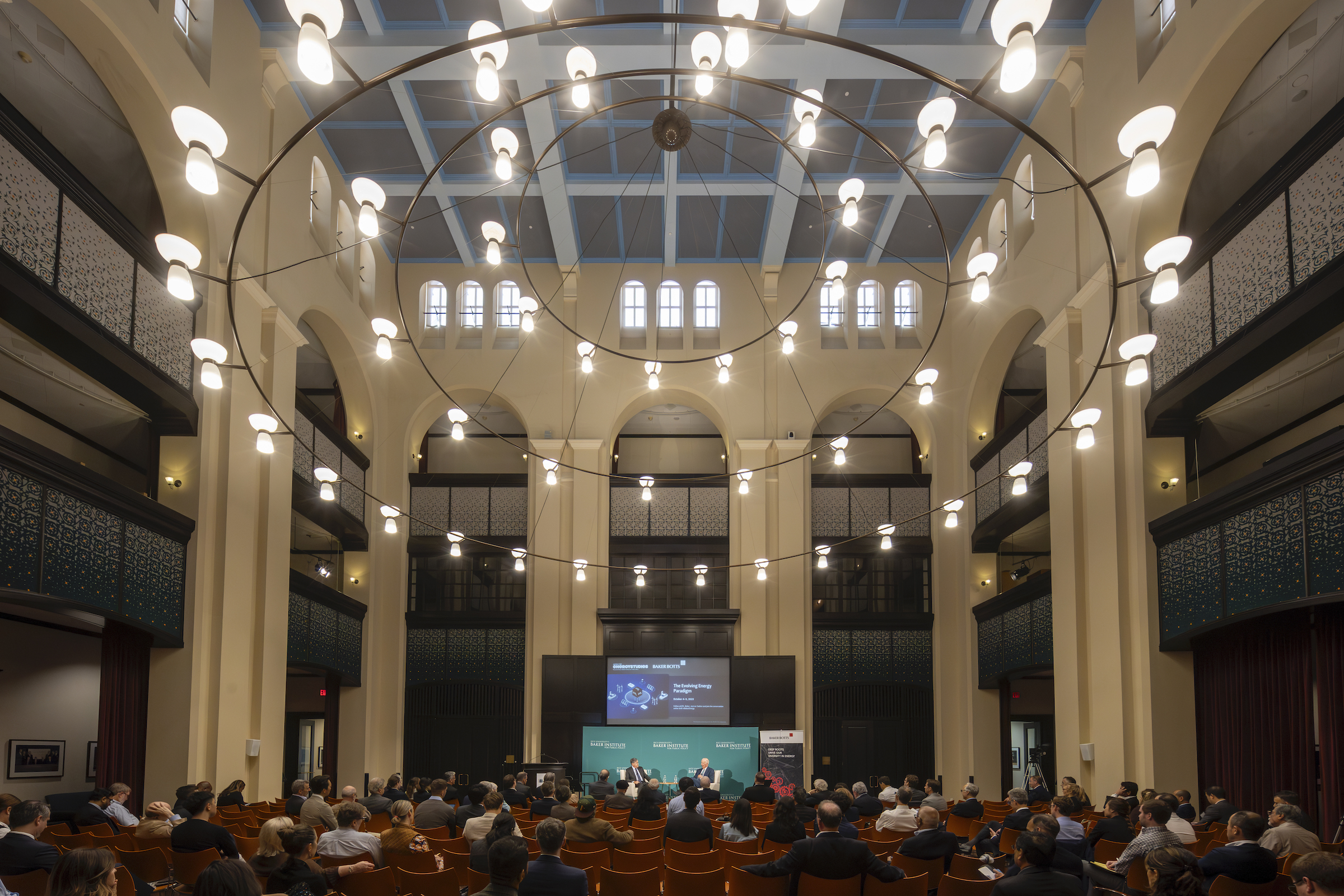Only a few weeks before the 30th anniversary celebration of Rice University’s Baker Institute director and former ambassador David Satterfield is on this day readying for a Q&A program scheduled for that evening between the famed Dr. Peter Hotez and the Houston Chronicle‘s Lisa Gray. The following day, the former ambassador to Lebanon and Turkey hosts Secretary of State of Antony Blinken in a fireside chat that is broadcast by CNN. In just a few days, the institute would host its annual and highly lauded Energy Summit.
The Baker Institute, under guidance of only its second director since its founding in 1993, is firing on all cylinders with an extensive calendar of programs designed to further introduce the institute and appeal to potential supporters in Houston, throughout the rest of Texas and beyond in an effort to grow its already loyal audience.

The 30th anniversary gala is case in point of this effort as Satterfield tells PaperCity.
“The turnout to the gala has been extraordinary,” Satterfield says. “It shows the appetite in Houston for serious conversations about public policy matters. I could not be happier at the near instantaneous response. And the funding that goes along with that.
“It is not going to be an evening of song and dance. It is going to be a very serious conversation with three extraordinary practitioners of foreign policy from both parties, over 50 plus years going back to Dr. Kissinger’s earliest experiences in the Nixon White House.”
Satterfield expects in the neighborhood of 1,000 to attend the October 26 evening that will feature Henry Kissinger, the United States’ 56th Secretary of State; James A. Baker III, 61st Secretary of State; and Hillary Rodham Clinton, 67th Secretary of State, with Norah O’Donnell, managing editor and anchor of CBS Evening News, serving as moderator.
The current goal, in addition to providing compelling programming for those interested in serious conversation, is to attract a younger audience of those who in the coming decades will be in significant decision making positions in the private or public sectors. With that goal and the need to recapture some of the advancement lost during COVID, the Baker Institute is engaging in a robust speakers program that is available to the general public.
“Our hope is that if they like what they’ve heard from this speaker, they may want to join our Roundtable, which is a very accessible group of supporters for whom we make events available, sometimes in special fashion, that allows us through their support to do more and more,” Satterfield says.
The Baker Institute for Public Policy sits at the top of the world’s ranking of university-affiliated so-called think tanks, though Satterfield would prefer the term “policy institute.”
During our interview, the director notes that the Baker Institute holds steadfastly to two founding principals. The institute would be rigorously nonpartisan and would be rigorously fact based. Further, he notes that all of the institute’s work is available for public consumption, the research done by the affiliated 100 fellows prepared in readable form.
“We’re writing for decision makers in public and private sector, for busy executives, C suite occupants, private sector, governmental sectors, local, state, national international, who have a lot of material coming across their desks and very limited time in which to read it and focus on it,” Satterfield says. “Which means how we present, what we write, and the recommendations we make have to be done in a way that is absorbable.
“Understandable by those in decision making positions. We are not writing for a limited audience of the same people writing the papers that we (at the Baker Institute) read.”
Satterfield offers a further note on the import of the Baker Institute and that is the value added to the institute’s work.
“Lots of folks out there in lots of institutions and institutes are writing away, analyzing, making recommendations, writing op eds for papers,” he says. “Where we have a value added in the quality of our experts, our location in Houston, our proximity to TMC and to the energy sector help us make a qualitative difference, not just a quantitative difference in how much we work, but the qualitative.
“That’s where we’re focused. And that’s very much what Baker wanted.”